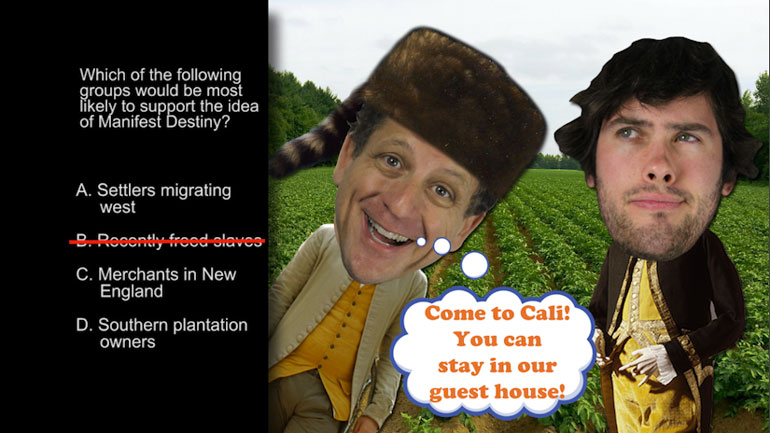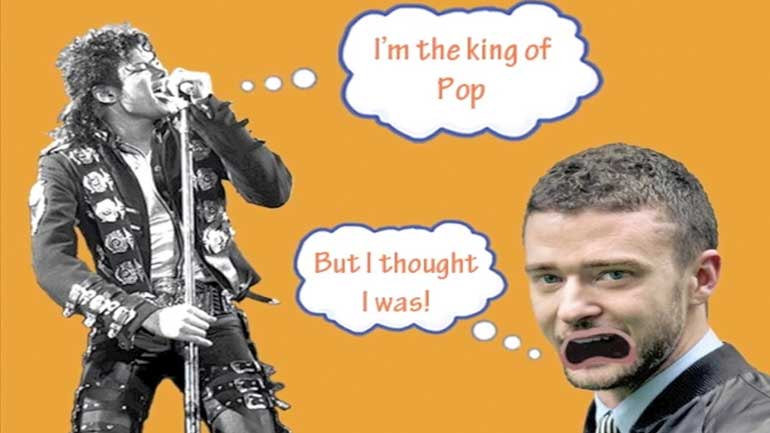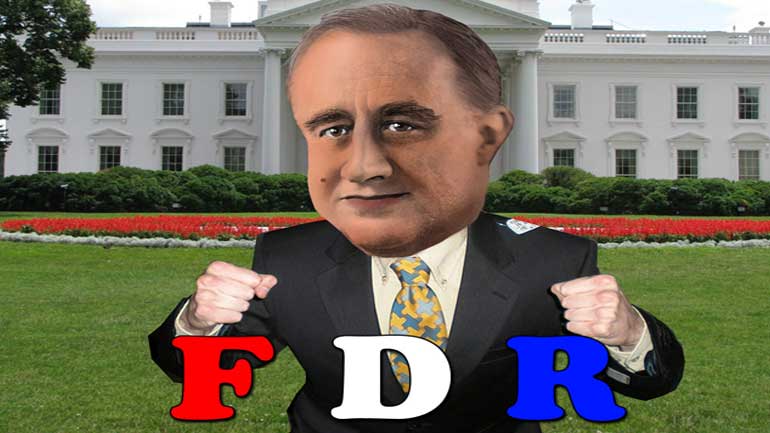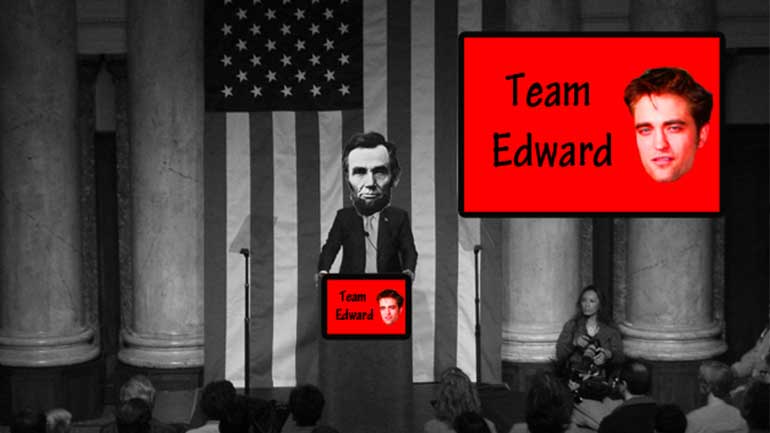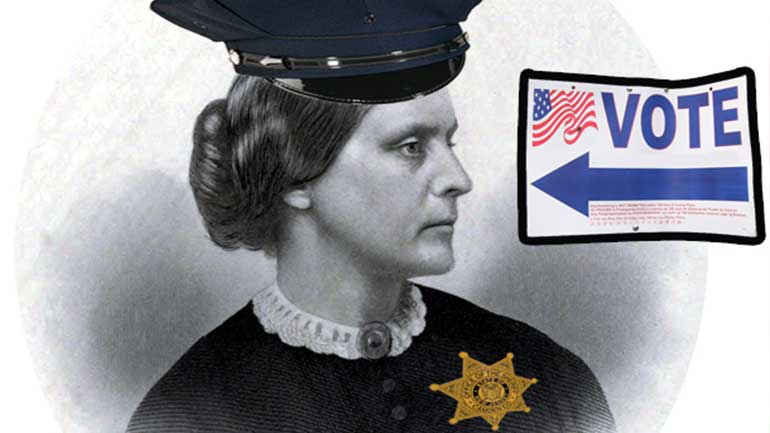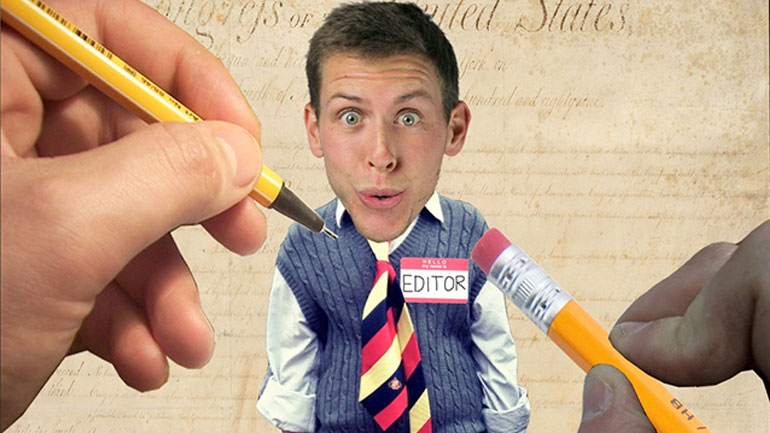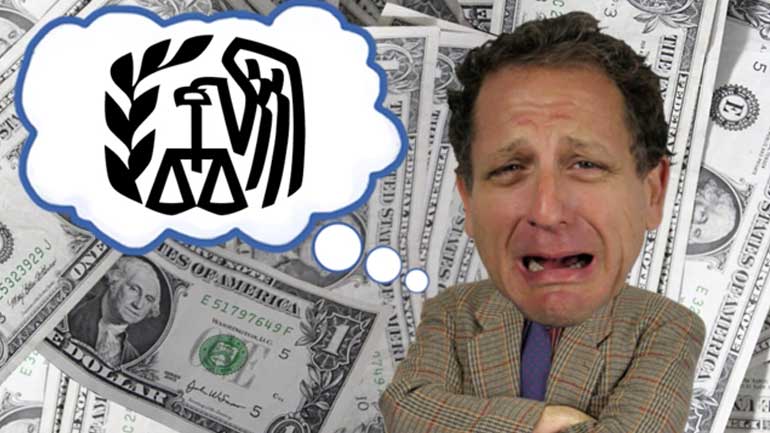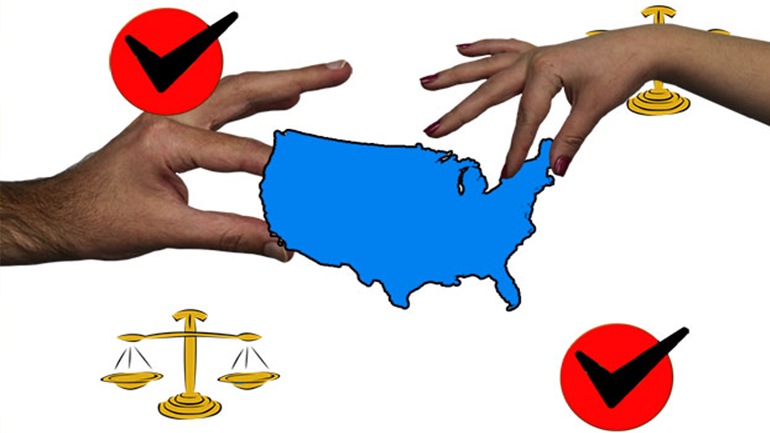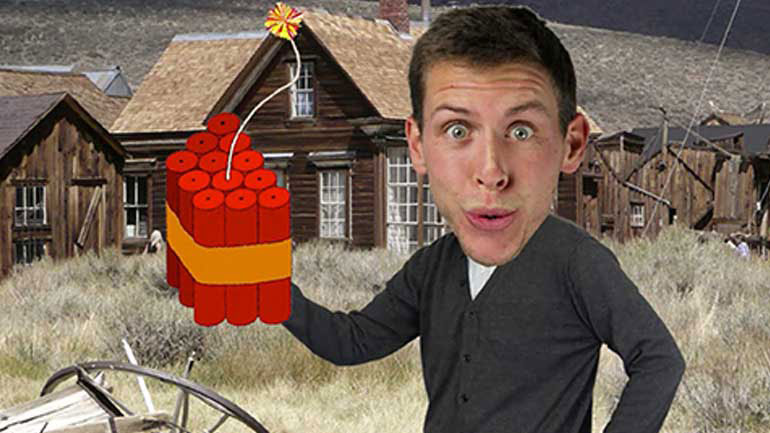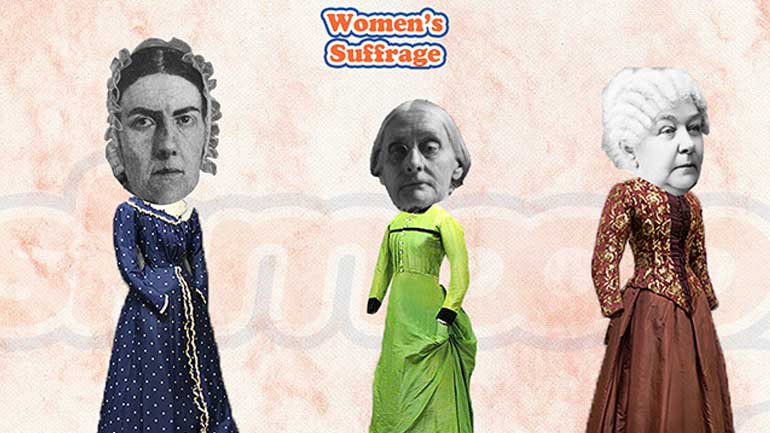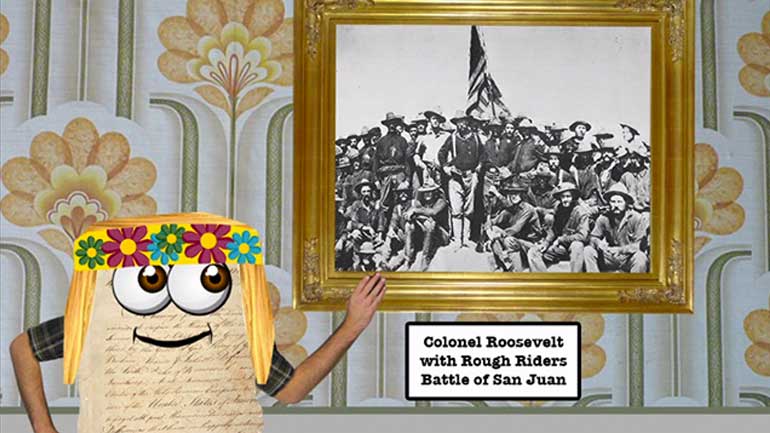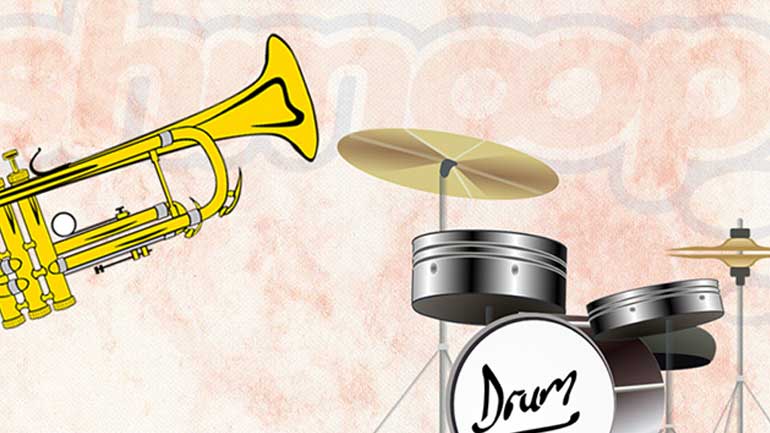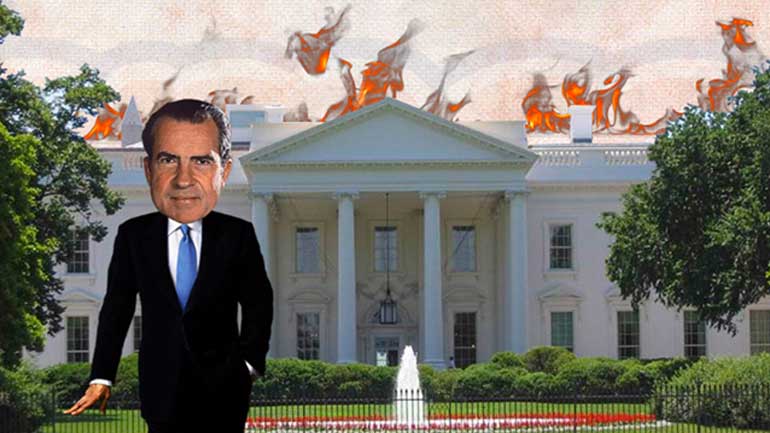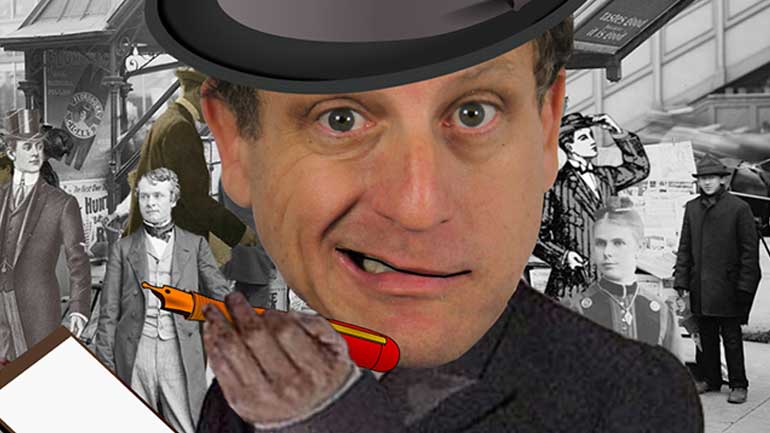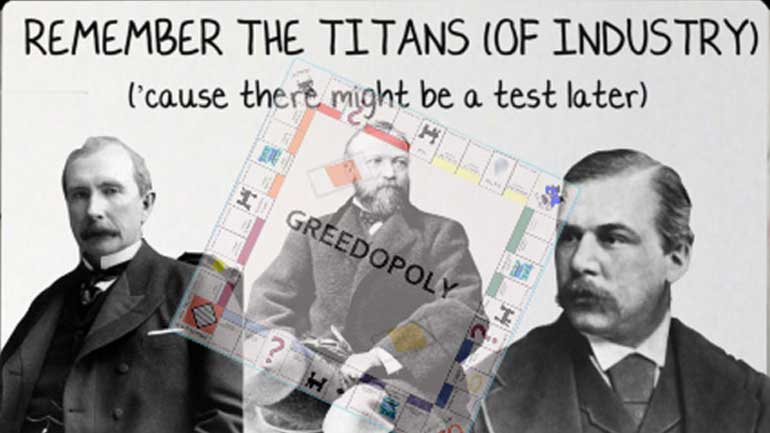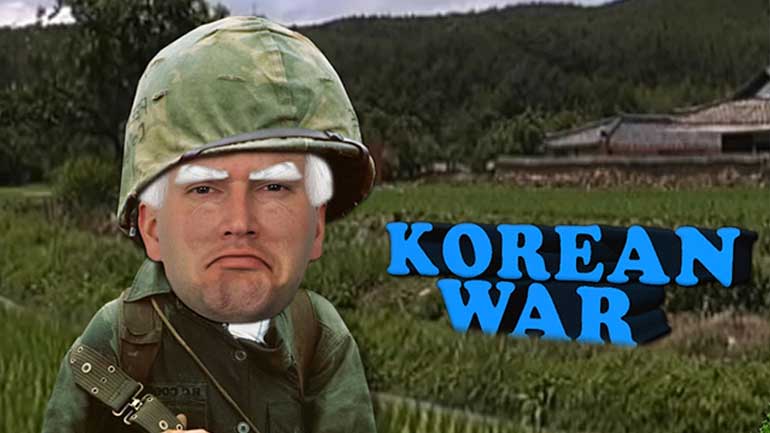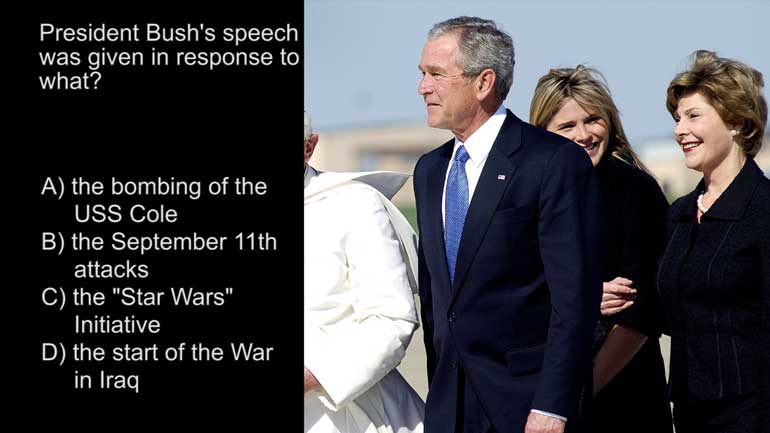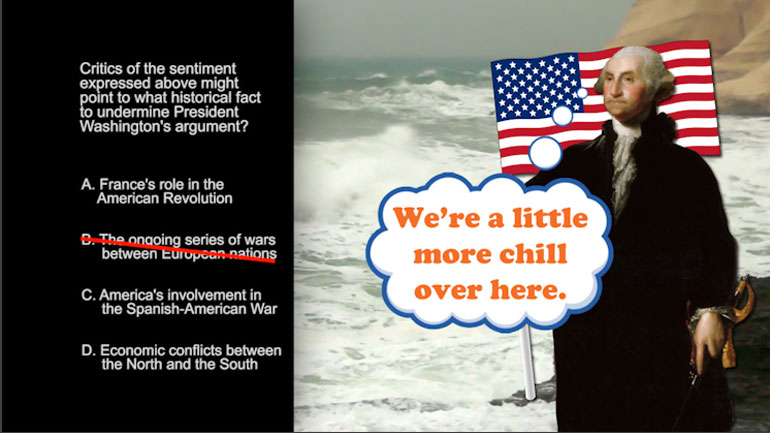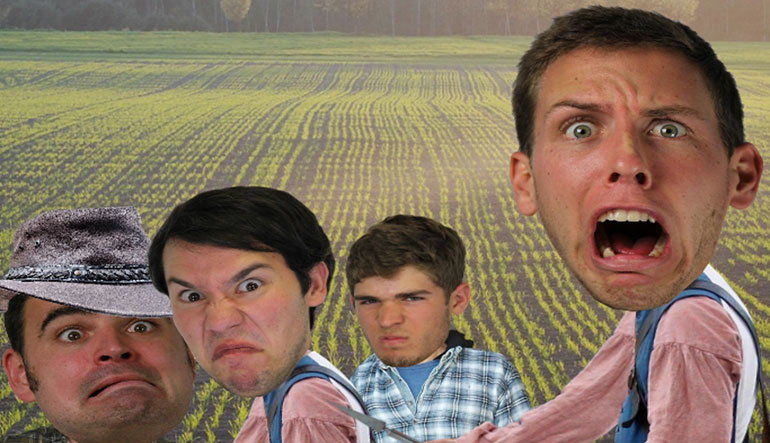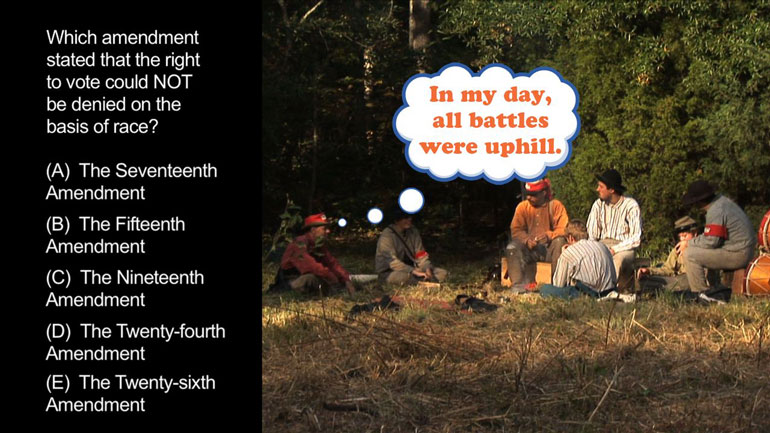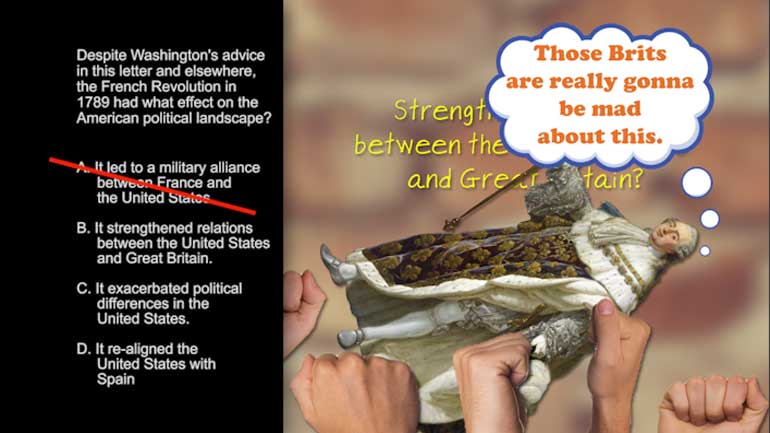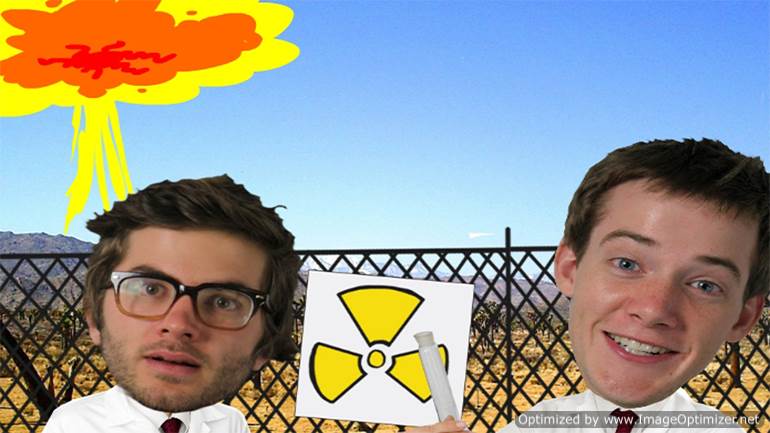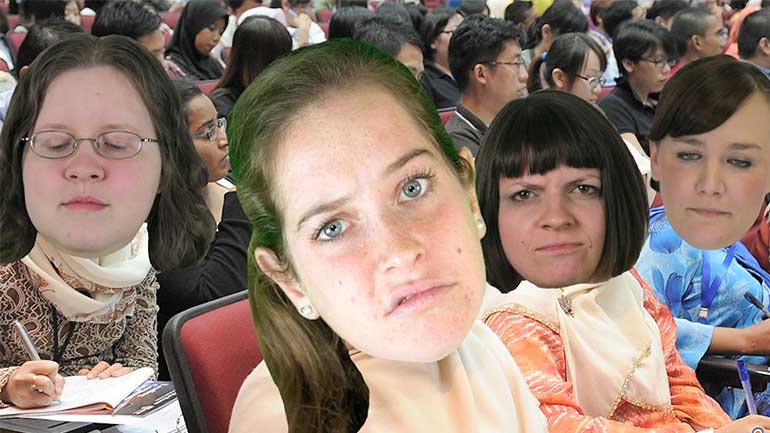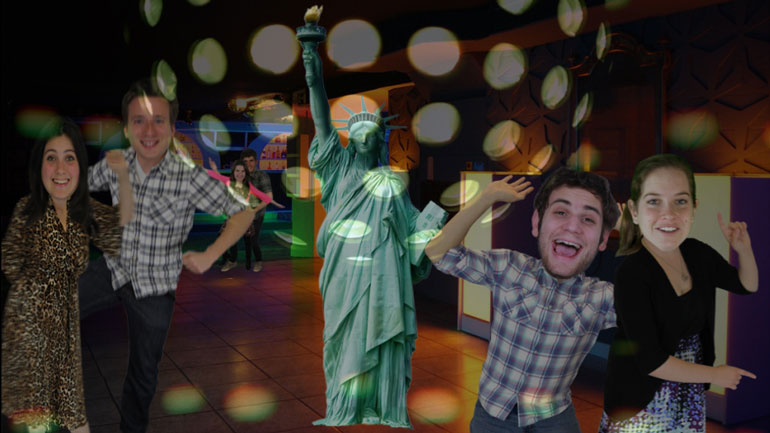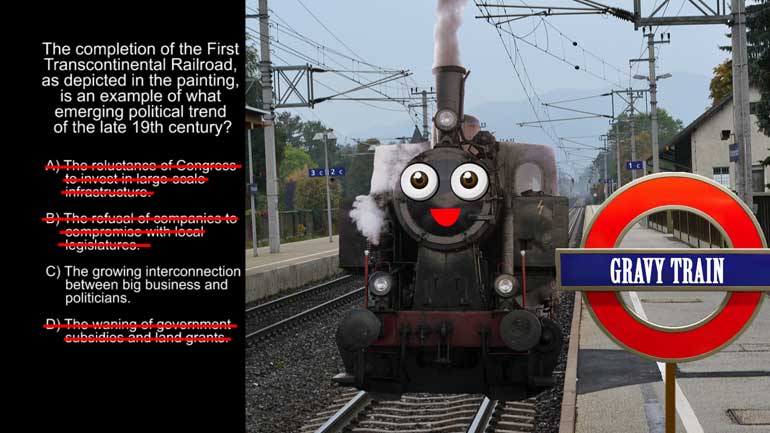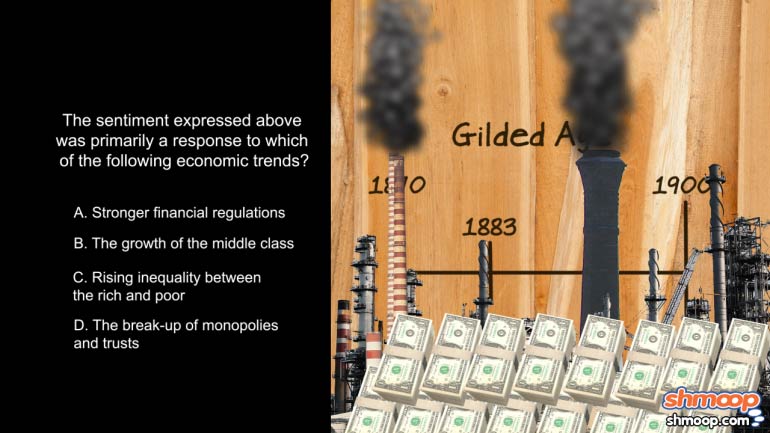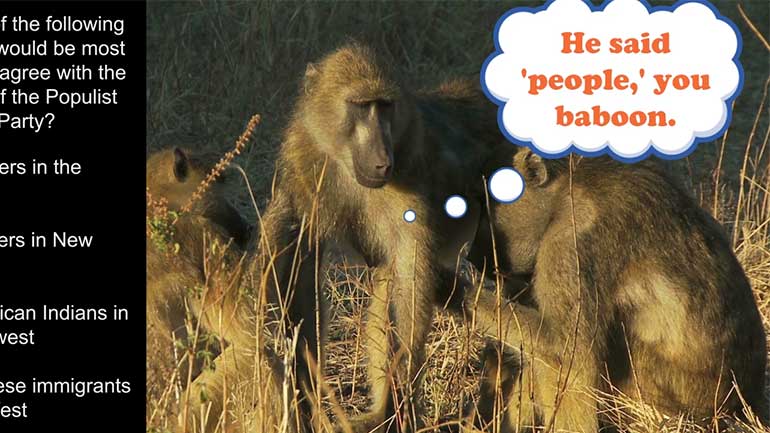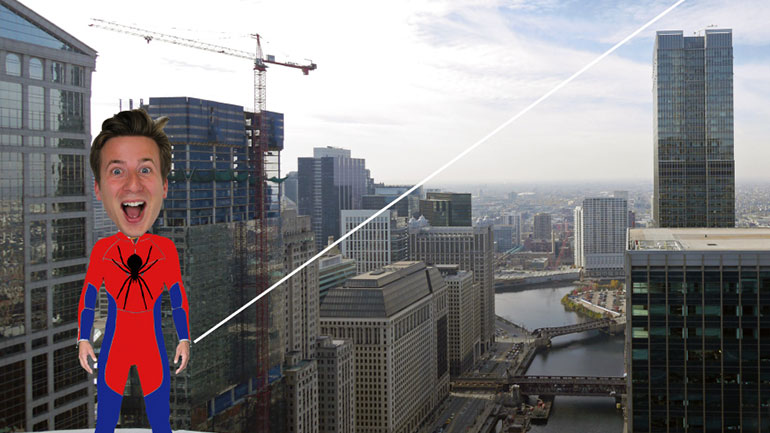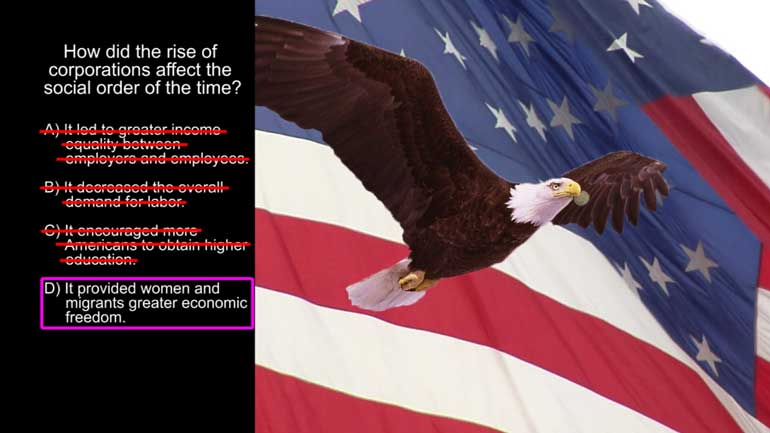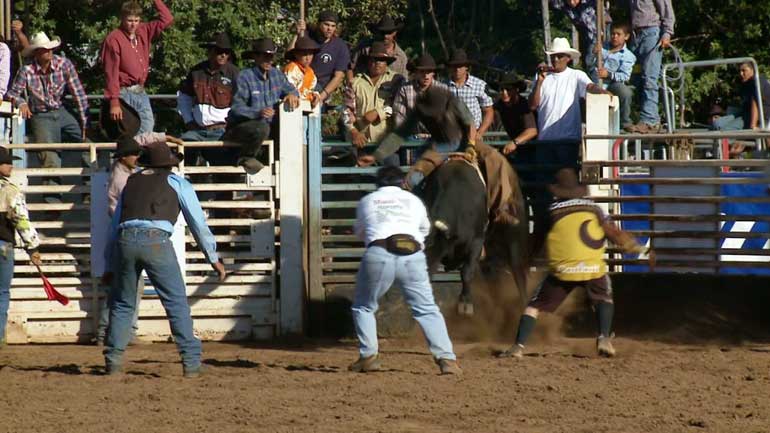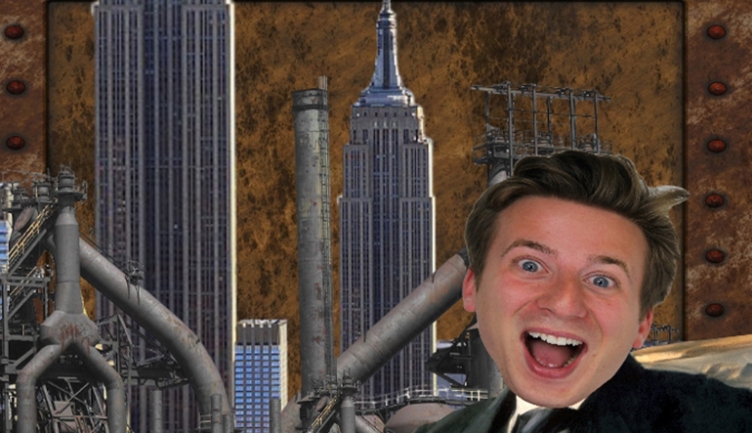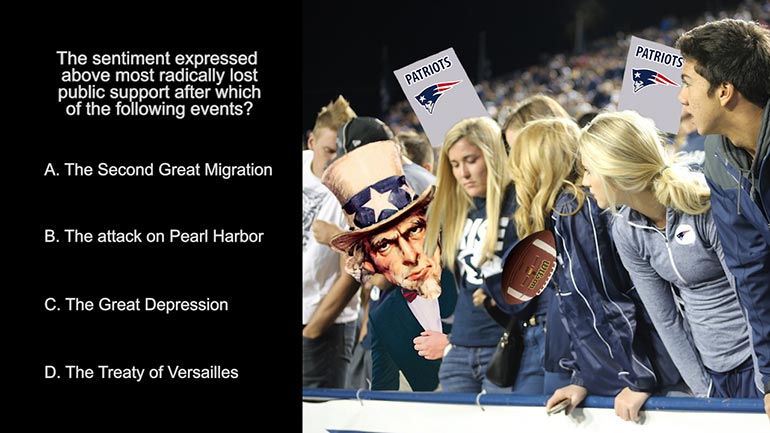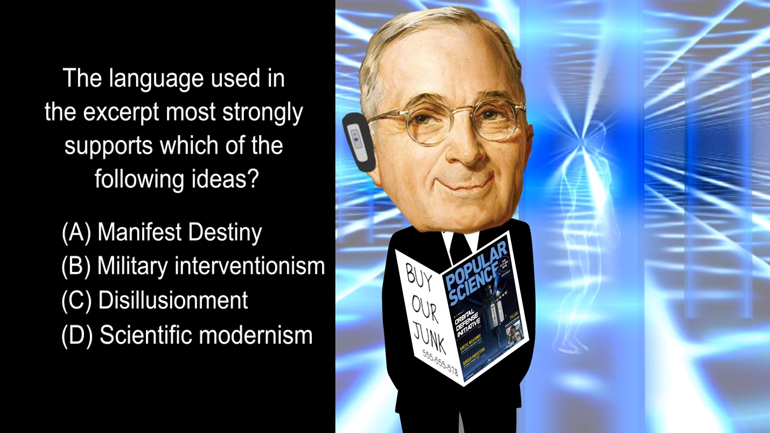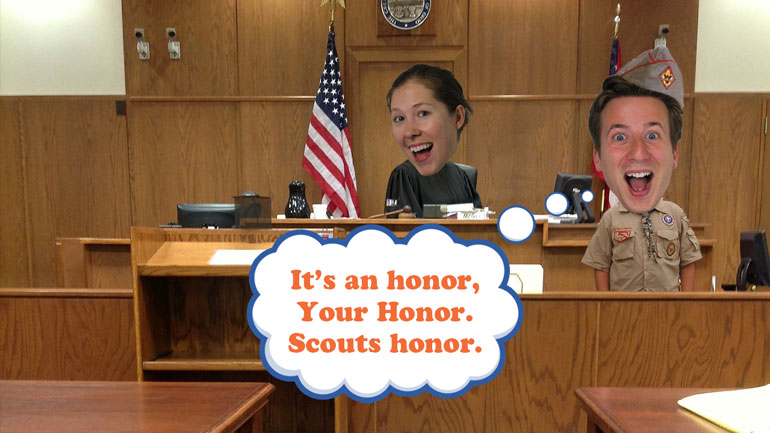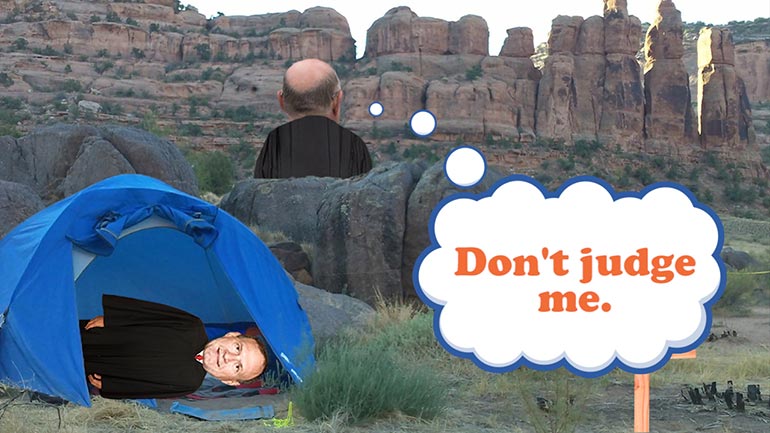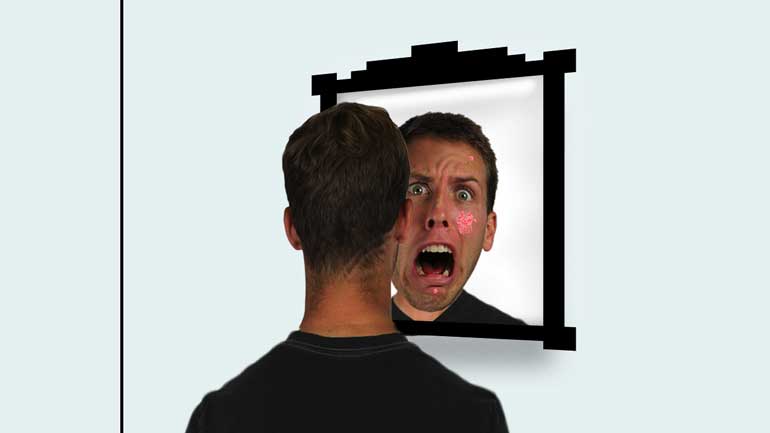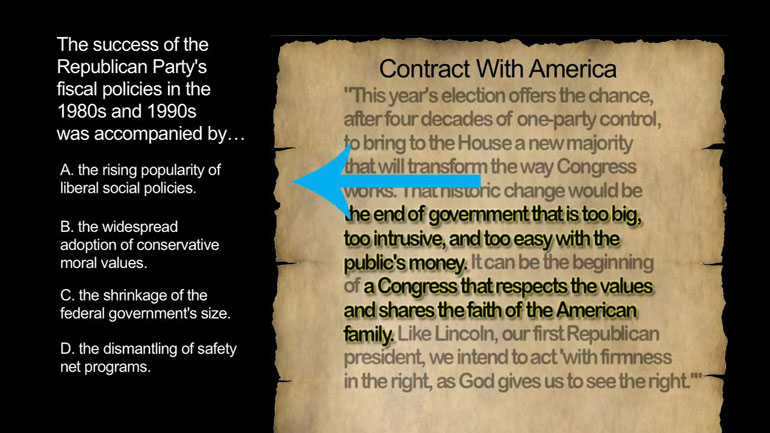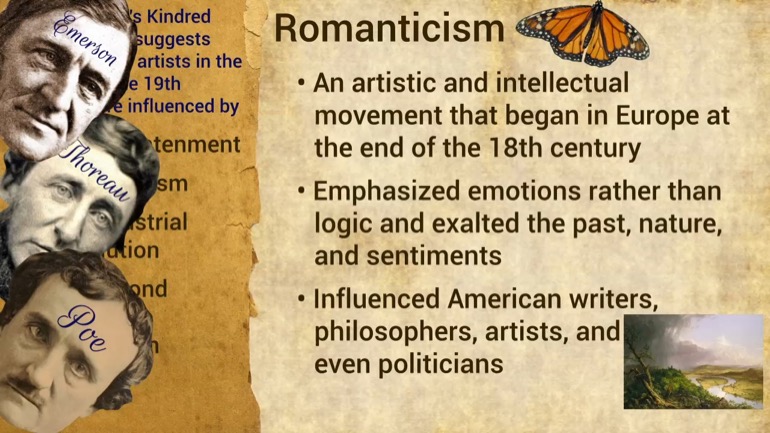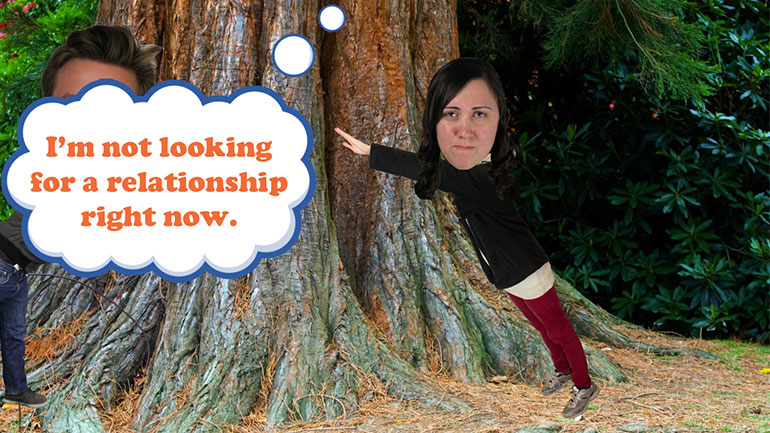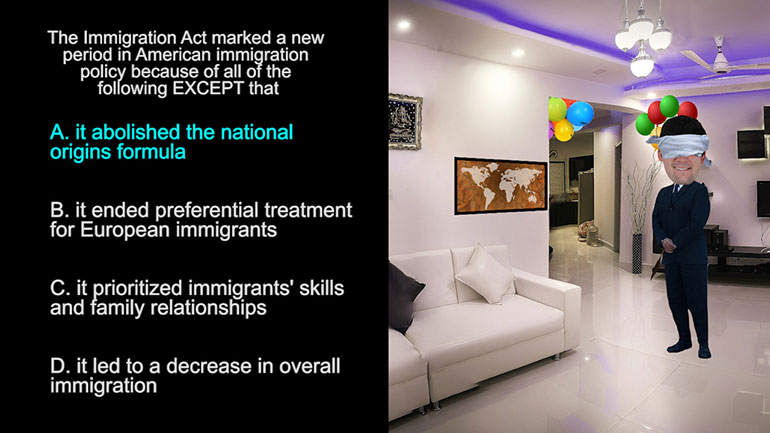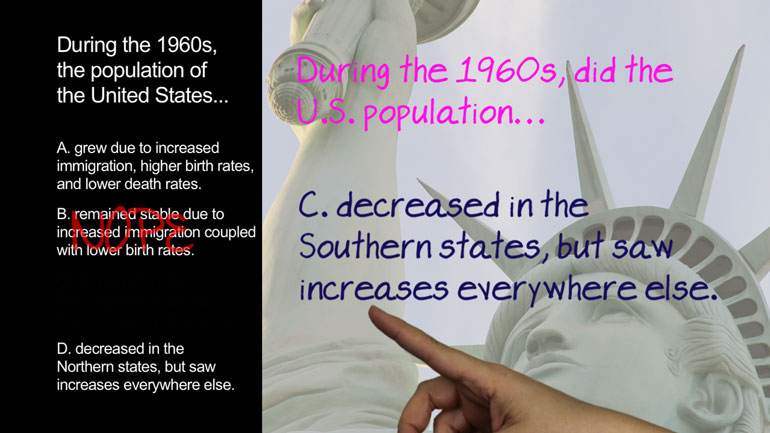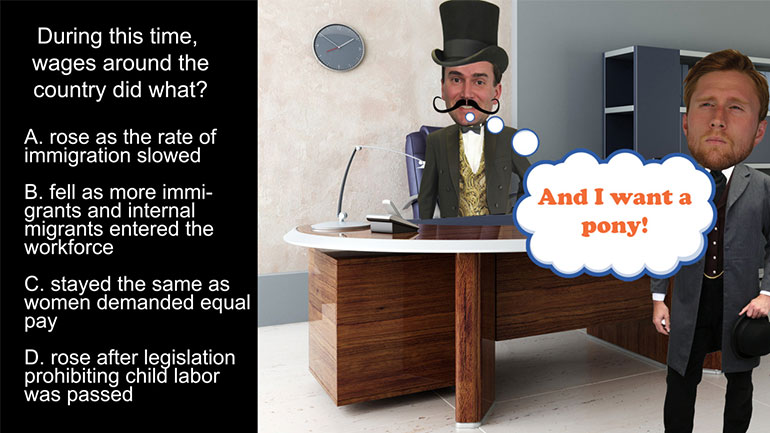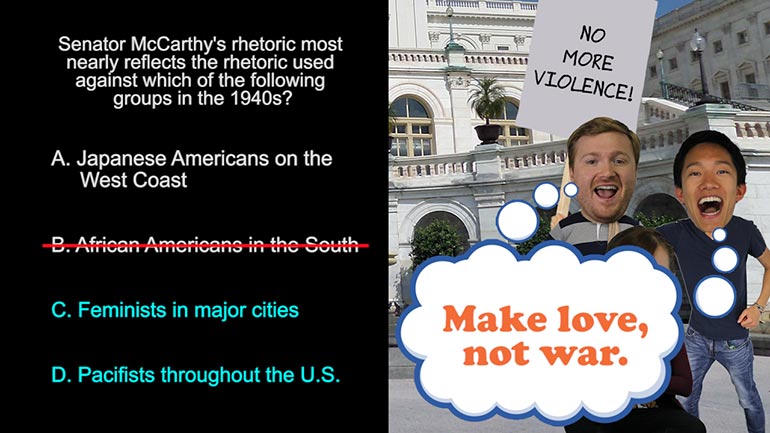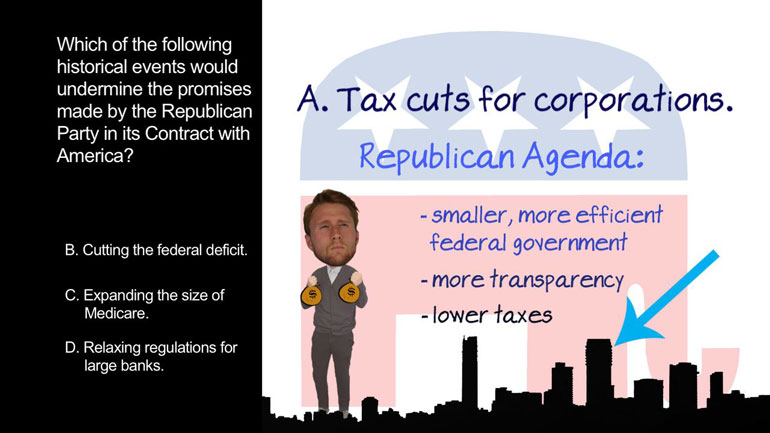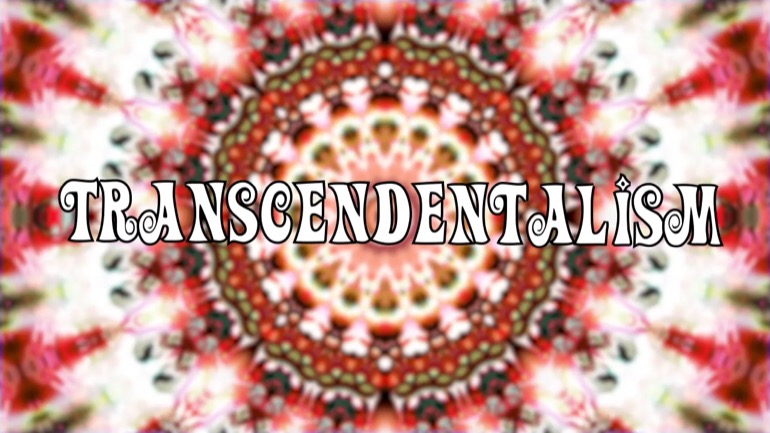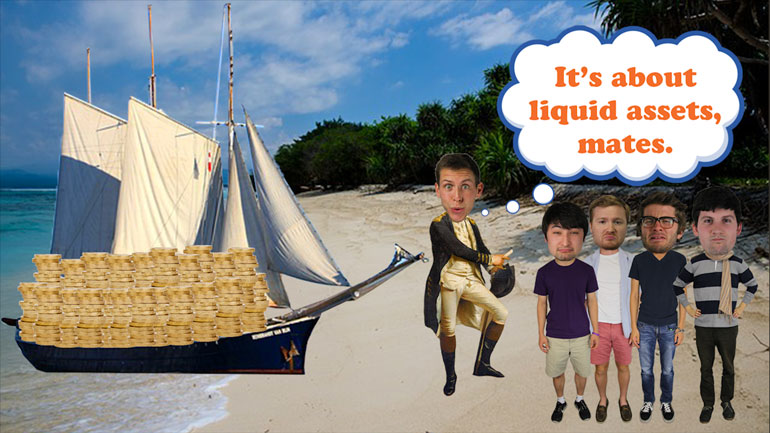ShmoopTube
Where Monty Python meets your 10th grade teacher.
Search Thousands of Shmoop Videos
U.S. History EOC Assessment Videos 64 videos
AP U.S. History 1.1 Period 5: 1848-1877. Which of the following groups would be most likely to support the idea of Manifest Destiny?
In the 1950s and 60s, people weren't just expressing their feelings toward the government—they were singing them, too. (Think Crosby, Stills, Nas...
Deal or no deal? FDR's New Deal provided hundreds of thousands of jobs in the public sector to bring the economy out of the Great Depression. It wa...
Why Does the Constitution Still Work for Us? 5723 Views
Share It!
Description:
Ever heard of a "living document"? They eat and breathe just like the rest of us! They even walk around on their own two legs. Okay, fine—maybe that's not the exact definition.
- Texas EOC / U.S. History EOC Assessment
- U.S. History EOC Assessment / History
- Reading Informational Text / Analyze seminal U.S. documents of historical and literary significance
- Reading Informational Text / Analyze seminal U.S. documents of historical and literary significance
- Reading Informational Text / Reasoning in seminal U.S. texts for both legal purposes and public advocacy
- Reading Informational Text / Analyze seventeenth, eighteenth, and nineteenth century foundational U.S. documents of historical and literary significance
Transcript
- 00:04
Why Does the Constitution Still Work for Us? a la Shmoop.
- 00:08
Hold on a second. So there's this document that was written hundreds of years ago...
- 00:12
back when people wore powdered wigs and rode horses to work...
- 00:15
...and yet somehow it's still supposed to apply to us today? How does that work?
- 00:22
Well, granted, there have been a number of modifications added to the Constitution over
Full Transcript
- 00:26
the years to reflect the changing of the times...
- 00:28
...but essentially it remains the foundation of our country's most cherished principles.
- 00:33
Why haven't we thrown this baby out with the bathwater? Let's take a good, hard look at it...
- 00:39
First and most importantly, we needed some
- 00:42
way to organize our government. It couldn't just be a bunch of random lawmakers running
- 00:46
around, posting new laws on tree trunks.
- 00:49
We needed a system... and a pecking order. The Constitution created an innovative separation
- 00:55
of powers... with judicial, legislative and executive branches...
- 01:01
...the last of which includes the President and Vice President. The big cheese... and
- 01:05
second cheese in command. The limburger, if you will.
- 01:12
Now, if you hadn't noticed, we still have the same set-up today.
- 01:16
Why haven't we given it up for dead? Well... it's nice to have one overall leader -- someone
- 01:21
to lead us, inspire us and guide us.
- 01:24
At the same time, our President isn't a dictator who can suddenly, on a whim, decree
- 01:28
that we all must start wearing pink from head to toe.
- 01:32
So we have the comfort of knowing that the head honcho in the White House is looking out for us...
- 01:36
...but he's also got plenty of help from people with quite a bit of power themselves
- 01:39
to keep him in check.
- 01:43
And that's a system that's got some staying power.
- 01:47
Now on to those "modifications" we mentioned.
- 01:49
Our forefathers imagined that some stuff might come up that they couldn't account for...
- 01:54
...so they instituted an amendment process, where the Constitution could be altered as
- 01:59
long as 2/3 of the House and Senate, and 3/4 of the states, were on board.
- 02:04
Women and many minorities are big fans of this one.
- 02:12
The Constitution's writers also suspected that it might be helpful to have some...
- 02:16
flexible definitions.
- 02:18
"Cruel and unusual punishment," for example, is pretty subjective.
- 02:24
For some people, that could mean waterboarding.
- 02:26
For someone else, it could mean a week without television.
- 02:32
"High crimes and misdemeanors" is kinda vague, too.
- 02:35
Originally, a president could only be impeached for treason and bribery...
- 02:42
...but nowadays, you can just about be impeached for wearing unshined shoes.
- 02:48
By allowing certain stuff to be redefined over time, the framers of the Constitution
- 02:52
ensured that the document could apply to future generations... and not only to their own.
- 02:57
Another major concern of our nation's founders was that we would... well... turn into our father.
- 03:02
They didn't want any tyrannical kings like back in the old days, so they decided to add
- 03:06
a few nifty features that would guard against oppression.
- 03:10
They added a Bill of Rights... the first 10 amendments.
- 03:13
They gave us many of our most valued rights, like freedom of speech, freedom of religion,
- 03:18
and freedom of wearing our pants around our knees.
- 03:21
To protect against any one part of the government having too much power, they created a system
- 03:26
of checks and balances...
- 03:28
...which kept everybody... balanced and in check. It allowed a President to veto a law...
- 03:35
...but a 2/3 vote from Congress could overturn a veto...
- 03:38
...and the Supreme Court could declare any of Congress' legislation unconstitutional.
- 03:43
It was like all three branches each held a third of a treasure map...
- 03:46
...so no one could get their hands on the entire treasure without the cooperation of the others.
- 03:53
Congress was further divided into a bicameral, or 2-housed, legislature...
- 03:57
...consisting of both the House of Representatives and the Senate.
- 04:01
Those guys keep each other in check... although how well they do that is open for debate.
- 04:06
The creation of these two houses was known as the "Great Compromise."
- 04:10
Looking back on it today, it might have also been called the "Only Compromise."
- 04:15
Anyway, the Compromise took the two proposed plans... the Virginia Plan, which favored
- 04:19
giving more representation to large states, and the New Jersey Plan, which would give
- 04:23
more representation to small states...
- 04:25
...and met them both in the middle. We've changed quite a lot since the Constitution
- 04:29
was first drafted, but the concept of Federalism...
- 04:32
...in which the Federal Government wields most of the power, but still grants a significant
- 04:36
amount of power to the states...
- 04:37
...has served us well over the years.
- 04:40
For that we can thank the 9th Amendment, which gave the states control of anything not specifically
- 04:45
designated for the federal government. And so, with all these rules and precautions in place...
- 04:50
...we've been able to keep the Constitution working for us, even with all our modern-day
- 04:54
gizmos and gadgets...
- 04:55
...and extreme changes in culture and philosophy.
- 04:58
And if other stuff comes up in the future that we aren't expecting...
- 05:03
...well, we'll just continue to amend the heck out of it.
Related Videos
GED Social Studies 1.1 Civics and Government
AP U.S. History 1.1 Period 5: 1848-1877. Which of the following groups would be most likely to support the idea of Manifest Destiny?
In the 1950s and 60s, people weren't just expressing their feelings toward the government—they were singing them, too. (Think Crosby, Stills, Nas...
Deal or no deal? FDR's New Deal provided hundreds of thousands of jobs in the public sector to bring the economy out of the Great Depression. It wa...
